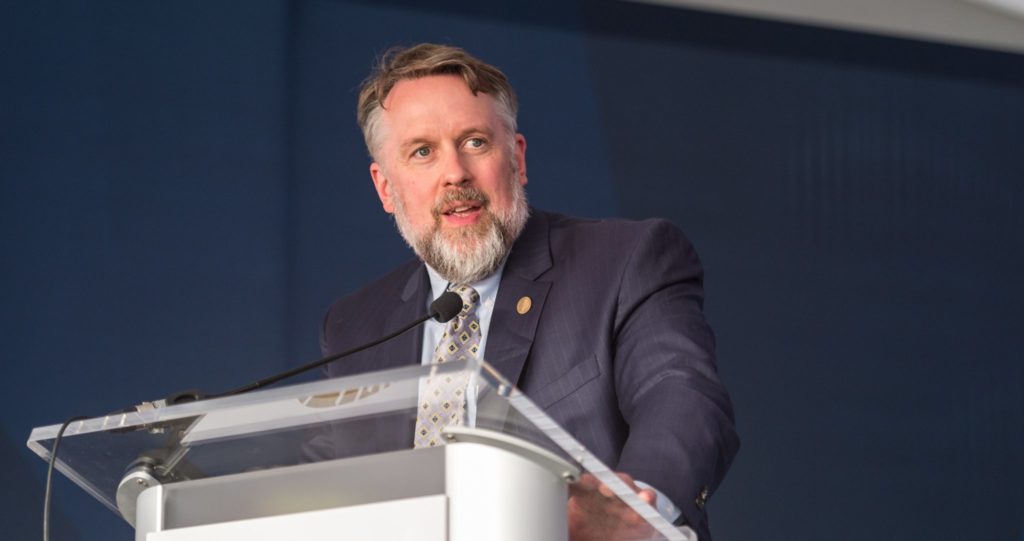
Have you given much thought to the domain name in your email address? Gmail, colostate or earthlink? Well Craig Partridge has. In fact, he is the one who designed how emails would be routed through these domains. He is also the one we can thank for high-speed, multi-gigabit routers coming on the scene in the 1990s.
And starting this summer, he will be leading the Department of Computer Science in Colorado State University’s College of Natural Sciences.
“I am looking forward to coming to Colorado State,” Partridge said. “Computer science skills will be essential in tomorrow’s workplace, and we want all of our graduates to have those skills.”
As the department’s new chair, Partridge hopes to expand partnerships with local businesses and government agencies, as well as improve access, teaching capacity and diversity in the field.
Internet famous
Partridge has spent the past 35 years working for Raytheon BBN Technologies, most recently as chief scientist for networking research. There, he oversees 70 researchers working on projects primarily funded by the U.S. Department of Defense.
Partridge received his A.B. in history and his M.Sc. and Ph.D. in computer science from Harvard University. He is a member of the National Science Foundation’s Computer, Information Science and Engineering Advisory Committee; a member of the National Academy of Sciences’ Computer Science and Telecommunications Board for the National Research Council; and served as chair of the Association for Computing Machinery’s Special Interest Group on Data Communications.
He has held adjunct faculty positions at Stanford University and the University of Michigan and is a fellow of the Institute for Electrical and Electronic Engineers and the Association of Computing Machinery. In 2017, Partridge was inducted into the Internet Hall of Fame.
“We are so pleased that Craig will be joining us and leading our computer science department,” said Dean of the College Jan Nerger. “His great achievements in the field and his commitment to research, teaching, access and growth will be a tremendous addition to campus. I am confident that he will do a superb job leading the department.”
The college also owes its gratitude to Professor Darrell Whitley, who has expertly led the department for 15 years. “Darrell has been a stalwart and adroit leader, seeing the department through years of tremendous growth and achievement,” Nerger said.
Increasing access
Thanks to Whitley’s hard work, the CSU computer science department now has more than 20 faculty who conduct internationally recognized research, as well as more than 800 computer science majors – and many, many more students across campus enrolled in classes in the department.
Partridge looks forward to furthering this work with the faculty as well as the students. “I love teaching university students,” he said. And there are likely to be an increasing number of students interacting with the department. “In five years, we’ll likely be teaching about twice as many students as we are today,” he said.
Additionally, he is eager to increase diversity and access. “Nationally, only about one in five students taking a computer science course is a woman or minority,” he said. He hopes to bring new programs to CSU to improve enrollment and retention of underrepresented students in the program.
Partridge is excited to be joining the department at this critical time. “The role of computer science departments is changing,” he said. “We’re moving from being a standalone discipline to being a skillset and perspective that is critical to a wide range of disciplines. Most of the new STEM jobs require some level of computer expertise. If you’re doing computational physics or synthetic biology, much of your work success is dependent on making computers do something novel or challenging.”
“I am looking forward to working with my new colleagues at Colorado State to ensure that computer science education and expertise is available to all those students who need it for their careers,” Partridge said. “If we do that right, we’ll have enabled a generation of students to go out and make Colorado – and indeed, the world – a better place. I like that challenge.”